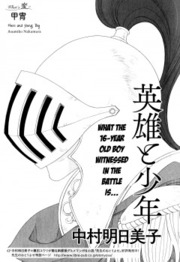
Depravity
by Ellie Sanders
HE THINKS HE’S MY SAVIOUR. BUT HE’S THE ONE WHO RUINED ME…
Tainted. Dirty. Those are the words my family use to describe me. It doesn’t help that after my mother escaped them all years ago, she was tragically killed and I was returned back to them like a neat little package.
My aunt hates me. My grandfather despises me.
My life until now has been one of keeping my mouth shut and keeping my head down, praying no one sees me.
And then he comes along. Conrad Blake. He’s confident, an egotistical arsehole but I’ll admit there is something attractive about him.
He’s my aunt’s fiancé. Forbidden fruit. Completely off-limits and yet, is it my imagination that he seems to watch me, follow me, stalk my presence, even?
My aunt certainly thinks so. She sees me as a threat. So she drugs me, dresses me up, and offers me like a sacrificial lamb, a bargaining chip to her handsome fiancé. Of course Conrad takes it, how could he not, I’m splayed out, immobile, completely at his mercy.
Except, he doesn’t want just one night. He doesn’t want just that moment. He wants more. He wants all of me, every single piece.
And now he’s stolen me away, locked me away, forced me to become his perfect little doll.
I have to escape him. I have to get away.
But how can I when I don’t have any friends, any money, anything?
In our world, a fallen woman only ends up at one place and I know that’s where my family will send me if they get hold of me.
This man may have ruined me, but now he’s the only chance of redemption I have left…
.
Read
Depravity on http://kissnovel.net
Martial Peak Reviews
Ellie Sanders' novel Depravity is a gripping exploration of power dynamics, emotional manipulation, and the quest for personal redemption. The book delves into the dark and often unsettling world of familial betrayal and forbidden desires, weaving a narrative that is both compelling and disturbing. At its core, Depravity is a story about survival and the desperate measures one might take to reclaim their autonomy in a world that seems determined to strip it away.
The protagonist, whose life has been marked by tragedy and rejection, is a character that readers will find themselves rooting for, despite the bleak circumstances she finds herself in. Her journey from a life of silence and invisibility to one of defiance and self-discovery is the backbone of the novel. Sanders crafts her with a depth that makes her struggles and triumphs feel intensely personal and relatable. Her internal monologue provides insight into her psyche, revealing a complexity that elevates her beyond a mere victim of circumstance.
Conrad Blake, the enigmatic and morally ambiguous figure at the center of the protagonist's turmoil, is portrayed with a duality that keeps readers on edge. He is both savior and captor, a man whose intentions are as murky as his past. Sanders does an excellent job of maintaining this ambiguity, allowing readers to question his motives and the nature of his obsession. Is he genuinely in love, or is his interest in the protagonist another form of control? This tension is a driving force in the narrative, compelling readers to turn the pages in search of answers.
The themes of power and control are prevalent throughout the novel, explored through the protagonist's interactions with her family and Conrad. Her aunt's betrayal is a particularly poignant aspect of the story, highlighting the destructive nature of jealousy and the lengths to which people will go to maintain their own power. The protagonist's struggle to reclaim her agency is a powerful commentary on the societal expectations placed on women and the often insidious ways in which they are undermined.
Sanders' writing is both evocative and immersive, drawing readers into the protagonist's world with vivid descriptions and a keen attention to detail. The oppressive atmosphere of her family home, contrasted with the unsettling allure of Conrad's domain, is depicted with a clarity that enhances the emotional impact of the story. The pacing is well-executed, with moments of tension and introspection balanced by periods of action and revelation.
In terms of character development, Sanders excels at creating multidimensional figures whose motivations and desires are intricately woven into the fabric of the narrative. The protagonist's evolution from a passive participant in her own life to an active seeker of freedom is portrayed with authenticity and nuance. Conrad, too, is a character who defies easy categorization, his complexity adding depth to the story's exploration of morality and desire.
Comparatively, Depravity shares thematic elements with works like V.C. Andrews' Flowers in the Attic and E.L. James' Fifty Shades of Grey. Like Andrews, Sanders delves into the dark underbelly of family dynamics, exposing the rot beneath the surface of respectability. Meanwhile, the intense, often unsettling relationship between the protagonist and Conrad echoes the power imbalances explored in James' work, albeit with a more sinister undertone.
However, what sets Depravity apart is its unflinching examination of the protagonist's internal struggle and the societal forces that conspire to keep her trapped. Sanders does not shy away from the harsh realities of her world, instead using them as a backdrop against which the protagonist's resilience and determination shine all the brighter. The novel's conclusion, while not offering a neat resolution, provides a sense of hope and the possibility of redemption, leaving readers with much to ponder long after the final page is turned.
Overall, Depravity is a thought-provoking and emotionally charged novel that will appeal to readers who enjoy stories of psychological complexity and moral ambiguity. Sanders' ability to craft a narrative that is both unsettling and deeply human is a testament to her skill as a storyteller. For those willing to delve into the darker aspects of human nature, Depravity offers a compelling and rewarding reading experience.
























Reviews 0
Post a Reviews: